
漢德百科全書 | 汉德百科全书
 Libanon
Libanon




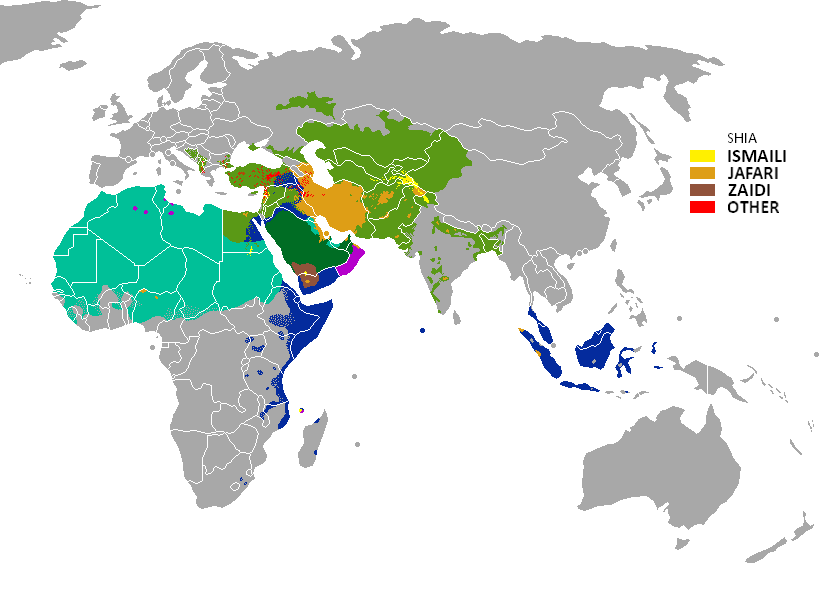
Die Schia (arabisch الشيعة asch-schīʿa, DMG aš-šīʿa ‚Anhängerschaft, Partei, Gruppe‘), im Deutschen auch Schiitentum oder Schiismus genannt, ist nach dem Sunnitentum die zweitgrößte religiöse Strömung innerhalb des Islams. Heute wird der Begriff häufig in verallgemeinernder Weise für die Zwölferschia verwendet, die die zahlenmäßig größte Gruppe innerhalb der Schia darstellt, allerdings umfasst die Schia noch zahlreiche andere Gruppierungen.
什叶派(阿拉伯语:شيعة,Shīʿah,英语:Shia,/ˈʃiːə/),来自阿拉伯语:شيعة علي(Shīʻatu ʻAlī,Shia-ne-Ali)的缩写,原意为阿里的追随者,与逊尼派并列为伊斯兰教的两大主要教派之一。什叶派与逊尼派各门派中的主要不同不在于教义问题,主要在于谁是穆罕默德“真正接班人”。在历史上曾出现过“穆阿维耶什叶”、“奥斯曼什叶”和“阿里什叶”等,目前则专指认为穆罕默德的继任者是阿里·本·阿比·塔利卜(穆罕默德堂弟及女婿)的人,逊尼派则认为穆罕默德的继任者是他的岳父阿布·伯克尔。
シーア派(アラビア語:الشيعة、ラテン文字転写:ash-Shīʻa(h))は、イスラム教の二大宗派の一つで、2番目の勢力を持つ。最大勢力であるもう一方はスンナ派(スンニ派)である。
7世紀のカリフであったアリー[1]とその子孫のみが、預言者の代理たる資格を持ち、「イスラム共同体(ウンマ))」の「指導者(イマーム)」の職務を後継する権利を持つと主張する。
Shia Islam or Shi'ism is one of the two main branches of Islam. It holds that the Islamic prophet Muhammad designated Ali ibn Abi Talib as his successor and the Imam (leader) after him,[1] most notably at the event of Ghadir Khumm, but was prevented from the caliphate as a result of the incident of Saqifah. This view primarily contrasts with that of Sunni Islam, whose adherents believe that Muhammad did not appoint a successor and consider Abu Bakr, who was appointed caliph by a group of Muslims at Saqifah, to be the first rightful caliph after Muhammad.[2] A person observing Shia Islam is called a Shi'ite.
Shia Islam is based on Muhammad's hadith (Ghadir Khumm).[3][4] Shia consider Ali to have been divinely appointed as the successor to Muhammad, and as the first Imam. The Shia also extend this Imammah to Muhammad's family, the Ahl al-Bayt ("the people/family of the House"),[5] and some individuals among his descendants, known as Imams, who they believe possess special spiritual and political authority over the community, infallibility and other divinely ordained traits.[6] Although there are many Shia subsects, modern Shia Islam has been divided into two main groupings: Twelvers and Ismailis, with Twelver Shia being the largest and most influential group among Shia.[7][8][9]
Il regroupe environ 10 à 15 % des musulmans. La première communauté chiite vit en Iran, où elle constitue 90 % de la population du pays, et environ 40 % de la population chiite mondiale2,3,4. Le reste des musulmans chiites se répartit principalement en Irak, en Azerbaïdjan, au Pakistan, en Inde, à Bahreïn et au Liban.
L’Islam sciita (in arabo: شيعة, shiʿa «partito, fazione», sottinteso «di ʿAli e dei suoi discendenti») è il principale ramo minoritario dell'Islam (intorno al 15% ai primi del XXI secolo).
Se da un lato essa presenta la maggioranza della popolazione in Iran, Iraq, Azerbaigian e Bahrein, dall'altro in Libano e in Yemen essa costituisce una forte e significativa minoranza, con quasi un terzo della popolazione di fede sciita.
In Egitto invece, in Siria, in Turchia, in Afghanistan, in India, in Qatar, in Kuwait, in Pakistan, nell'Asia Centrale ex-sovietica, nell'Africa islamica a sud del Sahara, lo sciismo vanta percentuali assai minori (tra il 5% e il 10%), come è il caso della stessa Arabia Saudita, col suo scarso 4-5% all'incirca. Anche all'interno dello sciismo (come nel sunnismo e nel kharigismo) ci sono i sufi e coloro che rifiutano l'approccio sufico considerato troppo libero.
El chiismo o islam chií (o chía, en árabe, شيعة (šīʿa)) constituye una de las principales ramas del islam junto al sunismo. Es el nombre tradicional por el que se conoce a la escuela de jurisprudencia islámica Ya'farita. El chiismo es profesado por alrededor del 15 % de los 1600 millones de musulmanes existentes en el mundo.2
Шии́ты (араб. شيعة; [шӣ‘а] — приверженцы, последователи) — направление ислама, объединяющее различные общины, признавшие Али ибн Абу Талиба и его потомков единственно законными наследниками и духовными преемниками пророка Мухаммеда[1]. В узком смысле понятие, как правило, означает шиитов-двунадесятников, преобладающее направление в шиизме, которое преимущественно распространено в Иране, Азербайджане, Бахрейне, Ираке и Ливане, а также в Йемене, Афганистане, Турции, Сирии, Кувейте, Пакистане, ОАЭ.

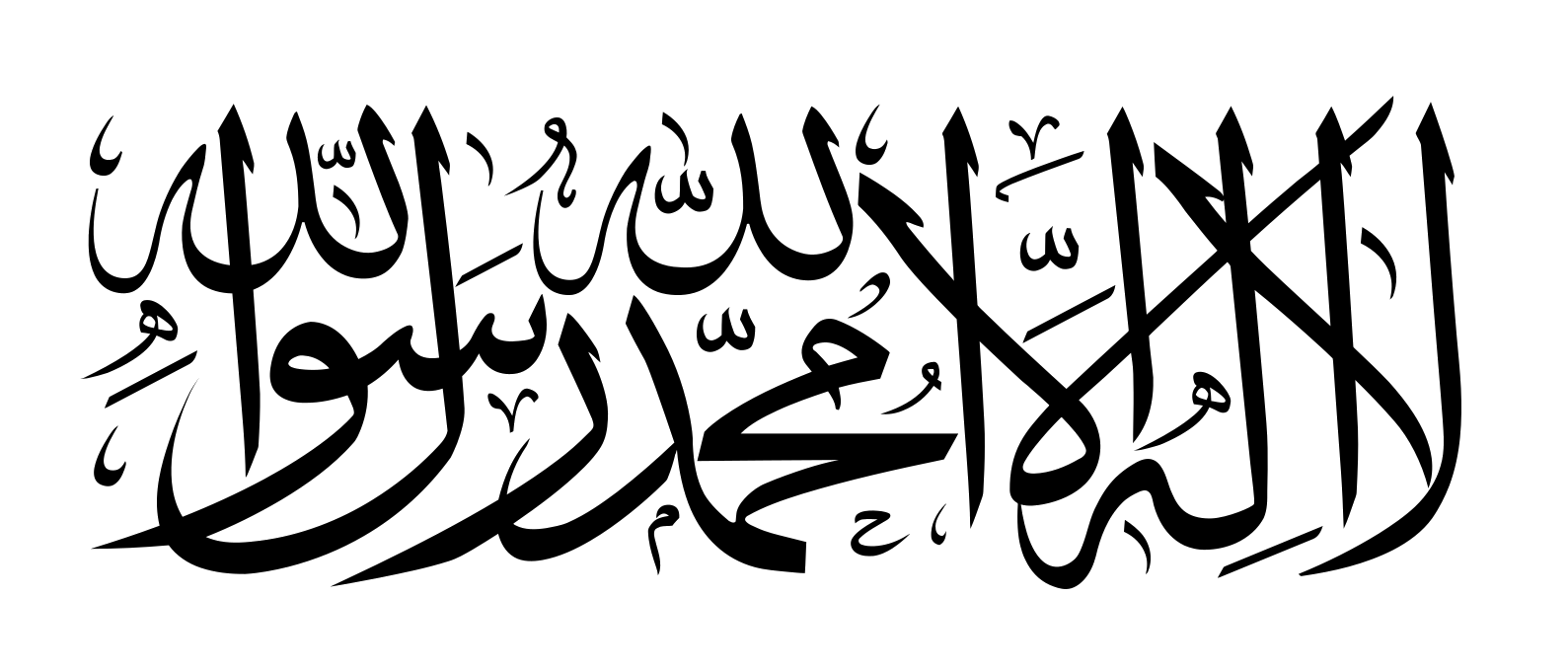 Afghanistan
Afghanistan
 Egypt
Egypt
 Albania
Albania
 Antigua and Barbuda
Antigua and Barbuda
 Argentina
Argentina
 Armenia
Armenia
 Azerbaijan
Azerbaijan
 Bahrain
Bahrain
 Bangladesh
Bangladesh
 Barbados
Barbados
 Beijing Shi-BJ
Beijing Shi-BJ
 Belarus
Belarus
 Belgium
Belgium
 Amber Road
Amber Road
 Bolivia
Bolivia
 Bosnia Herzegovina
Bosnia Herzegovina
 Bulgaria
Bulgaria
 Chile
Chile
 China
China
 Chongqing Shi-CQ
Chongqing Shi-CQ
 Columbia
Columbia
 Costa Rica
Costa Rica
 Cuba
Cuba
 Demokratische Republik Timor-Leste
Demokratische Republik Timor-Leste
 Dominica
Dominica
 Dominikanische Republik
Dominikanische Republik
 Ecuador
Ecuador
 Eritrea
Eritrea
 Fidschi
Fidschi

 Financial
Financial

 Financial
Financial
 *China economic data
*China economic data
 Fujian Sheng-FJ
Fujian Sheng-FJ
 Gansu Sheng-GS
Gansu Sheng-GS
 Georgia
Georgia
 Grenada
Grenada
 Greece
Greece
 Guangdong Sheng-GD
Guangdong Sheng-GD
 Guangxi Zhuangzu Zizhiqu-GX
Guangxi Zhuangzu Zizhiqu-GX
 Guyana
Guyana
 Hainan Sheng-HI
Hainan Sheng-HI

 Hand in Hand
Hand in Hand
 Hebei Sheng-HE
Hebei Sheng-HE
 Heilongjiang Sheng-HL
Heilongjiang Sheng-HL
 Henan Sheng-HA
Henan Sheng-HA
 Honduras
Honduras
 Hongkong Tebiexingzhengqu-HK
Hongkong Tebiexingzhengqu-HK
 Indonesia
Indonesia
 Iraq
Iraq
 Iran
Iran
 Jamaika
Jamaika
 Yemen
Yemen
 Jiangsu Sheng-JS
Jiangsu Sheng-JS
 Jilin Sheng-JL
Jilin Sheng-JL
 Jordan
Jordan
 Cambodia
Cambodia
 Kasachstan
Kasachstan
 Katar
Katar
 Kenya
Kenya
 Kenya
Kenya
 Kyrgyzstan
Kyrgyzstan
 Croatia
Croatia
 Kuwait
Kuwait
 Laos
Laos
 Latvia
Latvia
 Liaoning Sheng-LN
Liaoning Sheng-LN
 Libanon
Libanon
 Lithuania
Lithuania
 Luxembourg
Luxembourg
 Madagaskar
Madagaskar
 Malaysia
Malaysia
 Malediven
Malediven
 Malta
Malta
 Moldawien
Moldawien

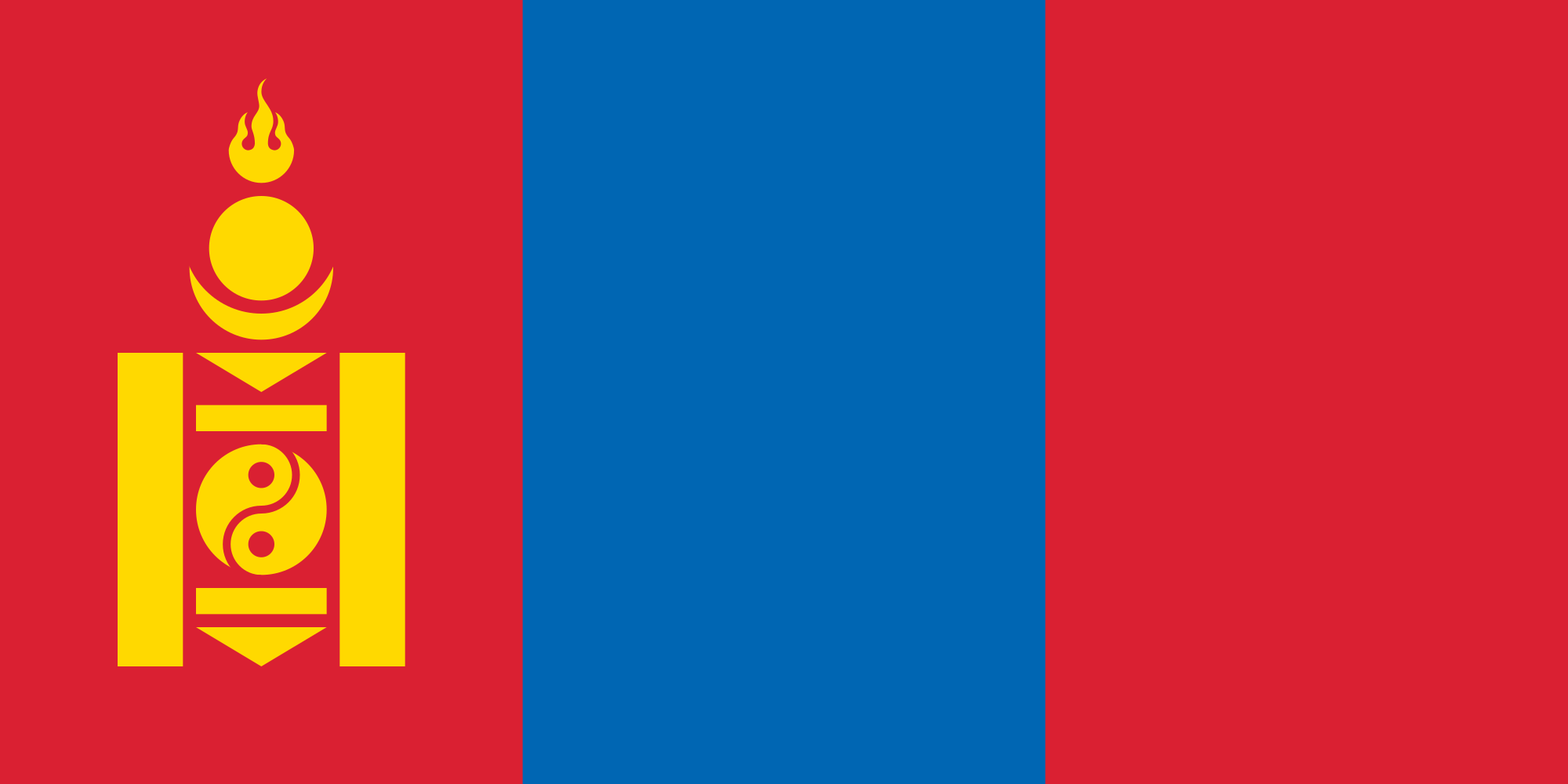 Mongolei
Mongolei
 Montenegro
Montenegro
 Myanmar
Myanmar
 Nei Mongol Zizhiqu-NM
Nei Mongol Zizhiqu-NM
 Nepal
Nepal
 New Zealand
New Zealand
 Nicaragua
Nicaragua
 Ningxia Huizu Zizhiqu-NX
Ningxia Huizu Zizhiqu-NX
 Ningxia Huizu Zizhiqu-NX
Ningxia Huizu Zizhiqu-NX
 Nordmazedonien
Nordmazedonien
 Oman
Oman
 Austria
Austria
 Pakistan
Pakistan
 Palestine
Palestine
 Papua-Neuguinea
Papua-Neuguinea
 Peru
Peru
 Poland
Poland
 Portugal
Portugal
 Qinghai Sheng-QH
Qinghai Sheng-QH
 Republik El Salvador
Republik El Salvador
 Republic of Korea
Republic of Korea
 Republic of the Sudan
Republic of the Sudan
 Romania
Romania
 Russia
Russia
 Switzerland
Switzerland
 Silk road
Silk road
 Serbia
Serbia
 Serbia
Serbia
 Shaanxi Sheng-SN
Shaanxi Sheng-SN
 Shanghai Shi-SH
Shanghai Shi-SH
 Sichuan Sheng-SC
Sichuan Sheng-SC
 Singapore
Singapore
 Slovakia
Slovakia
 Slovenia
Slovenia
 Somalia
Somalia
 Sri Lanka
Sri Lanka
 South Africa
South Africa
 Suriname
Suriname
 Syria
Syria
 Tajikistan
Tajikistan
 Taiwan Sheng-TW
Taiwan Sheng-TW
 Thailand
Thailand
 Tianjin Shi-TJ
Tianjin Shi-TJ
 Tianjin Shi-TJ
Tianjin Shi-TJ
 Trinidad und Tobago
Trinidad und Tobago
 Turkey
Turkey
 Turkmenistan
Turkmenistan
 Ukraine
Ukraine
 Hungary
Hungary

 Vacation and Travel
Vacation and Travel
 Uruguay
Uruguay
 Uzbekistan
Uzbekistan
 Venezuela
Venezuela
 United Arab Emirates
United Arab Emirates
 Vietnam
Vietnam

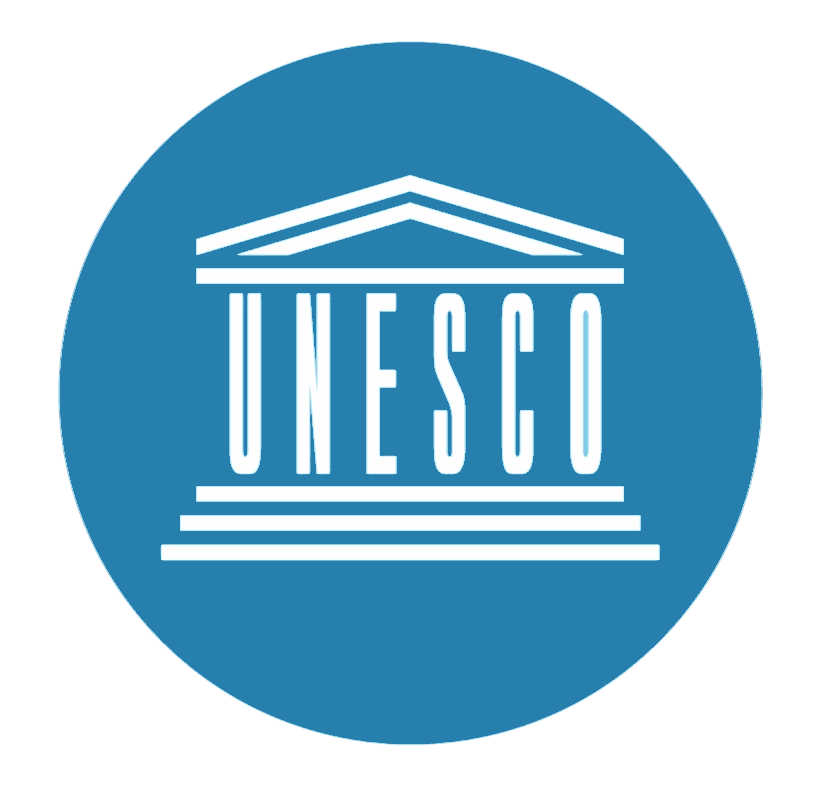 World Heritage
World Heritage

 Economy and trade
Economy and trade
 Xinjiang Uygur Zizhiqu-XJ
Xinjiang Uygur Zizhiqu-XJ
 Zhejiang Sheng-ZJ
Zhejiang Sheng-ZJ
 Cyprus
Cyprus

Als Seidenstraße (chinesisch 絲綢之路 / 丝绸之路, Pinyin Sīchóu zhī Lù ‚die Route / Straße der Seide‘; mongolisch ᠲᠣᠷᠭᠠᠨ ᠵᠠᠮ Tôrgan Jam; kurz: 絲路 / 丝路, Sīlù) bezeichnet man ein altes Netz von Karawanenstraßen, dessen Hauptroute den Mittelmeerraum auf dem Landweg über Zentralasien mit Ostasien verband. Die Bezeichnung geht auf den im 19. Jahrhundert lebenden deutschen Geografen Ferdinand von Richthofen zurück, der den Begriff 1877 erstmals verwendet hat.
Auf der antiken Seidenstraße wurde in westliche Richtung hauptsächlich Seide, gen Osten vor allem Wolle, Gold und Silber gehandelt.[1] Nicht nur Kaufleute, Gelehrte und Armeen nutzten ihr Netz, sondern auch Ideen, Religionen und ganze Kulturkreise diffundierten und migrierten auf den Routen von Ost nach West und umgekehrt: hierüber kamen z. B. der Nestorianismus (aus dem spätantiken Römischen Reich) und der Buddhismus (von Indien) nach China.[1]
Die 6.400 Kilometer[1] lange Route begann in Xi’an und folgte dem Verlauf der Chinesischen Mauer in Richtung Nordwesten, passierte die Taklamakan-Wüste, überwand das Pamirgebirge und führte über Afghanistan in die Levante; von hier wurden die Handelsgüter dann über das Mittelmeer verschifft. Nur wenige Kaufleute reisten auf der gesamten Route, die Waren wurden eher gestaffelt über Zwischenhändler transportiert.
Ihre größte Bedeutung erreichte das Handels- und Wegenetz zwischen 115 v. Chr. und dem 13. Jahrhundert n. Chr. Mit dem allmählichen Verlust römischen Territoriums in Asien und dem Aufstieg Arabiens in der Levante wurde die Seidenstraße zunehmend unsicher und kaum noch bereist. Im 13. und 14. Jahrhundert wurde die Strecke unter den Mongolen wiederbelebt, u. a. benutzte sie zu der Zeit der Venezianer Marco Polo um nach Cathay (China) zu reisen. Nach weit verbreiteter Ansicht war die Route einer der Hauptwege, über die Mitte des 14. Jahrhunderts Pestbakterien von Asien nach Europa gelangten und dort den Schwarzen Tod verursachten.[1]
Teile der Seidenstraße sind zwischen Pakistan und dem autonomen Gebiet Xinjiang in China heute noch als asphaltierte Fernstraße vorhanden (-> Karakorum Highway). Die alte Straße inspirierte die Vereinten Nationen zu einem Plan für eine transasiatische Fernstraße. Von der UN-Wirtschafts- und Sozialkommission für Asien und den Pazifik (UNESCAP) wird die Einrichtung einer durchgehenden Eisenbahnverbindung entlang der Route vorangetrieben, der Trans-Asian Railway.[1]
Die "Neue Seidenstraße", das "One Belt, One Road"-Projekt der Volksrepublik China unter ihrem Staatspräsident Xi Jinping umfasst landgestützte (Silk Road Economic Belt) und maritime (Maritime Silk Road) Infrastruktur- und Handelsrouten, Wirtschaftskorridore und Transportlinien von China über Zentralasien und Russland bzw. über Afrika nach Europa, dazu werden verschiedenste Einrichtungen (z. B. Tiefsee- oder Containerterminals) und Verbindungen (wie Bahnlinien oder Gaspipelines) entwickelt bzw. ausgebaut. Bestehende Korridore sind einerseits Landverbindungen über die Türkei oder Russland und andererseits Anknüpfungen zum Hafen von Shanghai, über Hongkong und Singapur nach Indien und Ostafrika, Dubai, den Suez-Kanal, den griechischen Hafen Piräus nach Venedig.[2]
Das Projekt One Belt, One Road (OBOR, chinesisch 一帶一路 / 一带一路, Pinyin Yídài Yílù ‚Ein Band, Eine Straße‘, neuerdings Belt and Road, da „One“ zu negativ besetzt war) bündelt seit 2013 die Interessen und Ziele der Volksrepublik China unter Staatspräsident Xi Jinping zum Auf- und Ausbau interkontinentaler Handels- und Infrastruktur-Netze zwischen der Volksrepublik und zusammen 64 weiteren Ländern Afrikas, Asiens und Europas. Die Initiative bzw. das Gesamtprojekt betrifft u. A. rund 62 % der Weltbevölkerung und ca. 35 % der Weltwirtschaft.[1][2]
Umgangssprachlich wird das Vorhaben auch „Belt and Road Initiative“ (B&R, BRI) bzw. ebenso wie das Projekt Transport Corridor Europe-Caucasus-Asia (TRACECA) auch „Neue Seidenstraße“ (新絲綢之路 / 新丝绸之路, Xīn Sīchóuzhīlù) genannt. Es bezieht sich auf den geografischen Raum des historischen, bereits in der Antike genutzten internationalen Handelskorridors „Seidenstraße“; zusammengefasst handelt es sich um zwei Bereiche, einen nördlich gelegenen zu Land mit sechs Bereichen unter dem Titel Silk Road Economic Belt und einen südlich gelegenen Seeweg namens Maritime Silk Road.
丝绸之路(德语:Seidenstraße;英语:Silk Road),常简称为丝路,此词最早来自于德意志帝国地理学家费迪南·冯·李希霍芬男爵于1877年出版的一套五卷本的地图集。[1]
丝绸之路通常是指欧亚北部的商路,与南方的茶马古道形成对比,西汉时张骞以长安为起点,经关中平原、河西走廊、塔里木盆地,到锡尔河与乌浒河之间的中亚河中地区、大伊朗,并联结地中海各国的陆上通道。这条道路也被称为“陆路丝绸之路”,以区别日后另外两条冠以“丝绸之路”名称的交通路线。因为由这条路西运的货物中以丝绸制品的影响最大,故得此名。其基本走向定于两汉时期,包括南道、中道、北道三条路线。但实际上,丝绸之路并非是一条 “路”,而是一个穿越山川沙漠且没有标识的道路网络,并且丝绸也只是货物中的一种。[1]:5
广义的丝绸之路指从上古开始陆续形成的,遍及欧亚大陆甚至包括北非和东非在内的长途商业贸易和文化交流线路的总称。除了上述的路线之外,还包括约于前5世纪形成的草原丝绸之路、中古初年形成,在宋代发挥巨大作用的海上丝绸之路和与西北丝绸之路同时出现,在宋初取代西北丝绸之路成为路上交流通道的南方丝绸之路。
虽然丝绸之路是沿线各君主制国家共同促进经贸发展的产物,但很多人认为,西汉的张骞在前138—前126年和前119年曾两次出使西域,开辟了中外交流的新纪元,并成功将东西方之间最后的珠帘掀开。司马迁在史记中说:“于是西北国始通于汉矣。然张骞凿空,其后使往者皆称博望侯,以为质与国外,外国由此信之”,称赞其开通西域的作用。从此,这条路线被作为“国道”踩了出来,各国使者、商人、传教士等沿着张骞开通的道路,来往络绎不绝。上至王公贵族,下至乞丐狱犯,都在这条路上留下了自己的足迹。这条东西通路,将中原、西域与大伊朗、累范特、阿拉伯紧密联系在一起。经过几个世纪的不断努力,丝绸之路向西伸展到了地中海。广义上丝路的东段已经到达了朝鲜、日本,西段至法国、荷兰。通过海路还可达意大利、埃及,成为亚洲和欧洲、非洲各国经济文化交流的友谊之路。
丝绸之路经济带和21世纪海上丝绸之路(英语:The Silk Road Economic Belt and the 21st-century Maritime Silk Road[1]),简称一带一路(英语:The Belt and Road Initiative,缩写B&R)[1],是中华人民共和国政府于2013年倡议[2]并主导的跨国经济带[3]。
一带一路范围涵盖历史上丝绸之路和海上丝绸之路行经的中国、中亚、北亚和西亚、印度洋沿岸、地中海沿岸的国家和地区。中国政府指出,“一带一路”倡议坚持共商、共建、共享的原则,努力实现沿线区域基础设施更加完善,更加安全高效,以形成更高水平的陆海空交流网络。同时使投资贸易的便利化水平更有效的提升,建立高品质、高标准的自由贸易区域网。以使沿线各国经济联系更加紧密,政治互信更加的深入,人文交流更加的广泛[4]。
シルクロード(絹の道、英語: Silk Road, ドイツ語: Seidenstraße, 繁体字:絲綢之路, 簡体字:丝绸之路)は、中国と地中海世界の間の歴史的な交易路を指す呼称である。絹が中国側の最も重要な交易品であったことから名付けられた。その一部は2014年に初めて「シルクロード:長安-天山回廊の交易路網」としてユネスコの世界遺産に登録された。
「シルクロード」という名称は、19世紀にドイツの地理学者リヒトホーフェンが、その著書『China(支那)』(1巻、1877年)においてザイデンシュトラーセン(ドイツ語:Seidenstraßen;「絹の道」の複数形)として使用したのが最初であるが、リヒトホーフェンは古来中国で「西域」と呼ばれていた東トルキスタン(現在の中国新疆ウイグル自治区)を東西に横断する交易路、いわゆる「オアシスの道(オアシスロード)」を経由するルートを指してシルクロードと呼んだのである。リヒトホーフェンの弟子で、1900年に楼蘭の遺跡を発見したスウェーデンの地理学者ヘディンが、自らの中央アジア旅行記の書名の一つとして用い、これが1938年に『The Silk Road』の題名で英訳されて広く知られるようになった。
シルクロードの中国側起点は長安(陝西省西安市)、欧州側起点はシリアのアンティオキアとする説があるが、中国側は洛陽、欧州側はローマと見る説などもある。日本がシルクロードの東端だったとするような考え方もあり、特定の国家や組織が経営していたわけではないのであるから、そもそもどこが起点などと明確に定められる性質のものではない。
現在の日本でこの言葉が使われるときは、特にローマ帝国と秦・漢帝国、あるいは大唐帝国の時代の東西交易が念頭に置かれることが多いが、広くは近代(大航海時代)以前のユーラシア世界の全域にわたって行われた国際交易を指し、南北の交易路や海上の交易路をも含める。つまり、北方の「草原の道(ステップロード)」から南方の「海の道(シーロード)」までを含めて「シルクロード」と呼ばれるようになっているわけである。
シルクロード経済ベルトと21世紀海洋シルクロード(シルクロードけいざいベルトと21せいきかいようシルクロード、拼音: 、英語: The Silk Road Economic Belt and the 21st-century Maritime Silk Road)とは、2014年11月10日に中華人民共和国北京市で開催されたアジア太平洋経済協力首脳会議で、習近平総書記が提唱した経済圏構想である。
略称は一帯一路(いったいいちろ、拼音: 、英語: The Belt and Road Initiative, BRI; One Belt, One Road Initiative, OBOR)。
The Silk Road was an ancient network of trade routes that connected the East and West. It was central to cultural interaction between the regions for many centuries.[1][2][3] The Silk Road refers to both the terrestrial and the maritime routes connecting East Asia and Southeast Asia with East Africa, West Asia and Southern Europe.
The Silk Road derives its name from the lucrative trade in silk carried out along its length, beginning in the Han dynasty (207 BCE–220 CE). The Han dynasty expanded the Central Asian section of the trade routes around 114 BCE through the missions and explorations of the Chinese imperial envoy Zhang Qian.[4] The Chinese took great interest in the safety of their trade products and extended the Great Wall of China to ensure the protection of the trade route.[5]
Trade on the Road played a significant role in the development of the civilizations of China, Korea,[6] Japan,[2] India, Iran, Afghanistan, Europe, the Horn of Africa and Arabia, opening long-distance political and economic relations between the civilizations.[7] Though silk was the major trade item exported from China, many other goods were traded, as well as religions, syncretic philosophies, sciences, and technologies. Diseases, most notably plague, also spread along the Silk Road.[8] In addition to economic trade, the Silk Road was a route for cultural trade among the civilizations along its network.[9]
Traders in ancient history included the Bactrians, Sogdians, Syrians, Jews, Arabs, Iranians, Turkmens, Chinese, Malays, Indians, Somalis, Greeks, Romans, Georgians, Armenians, and Azerbaijanis.[10]
In June 2014, UNESCO designated the Chang'an-Tianshan corridor of the Silk Road as a World Heritage Site. The Indian portion is on the tentative site list.
The Belt and Road Initiative (BRI) or the Silk Road Economic Belt and the 21st-century Maritime Silk Road is a development strategy adopted by the Chinese government. The 'belt' refers to the overland interconnecting infrastructure corridors; the Silk Road Economic Belt (SREB) component. The 'road' refers to the sea route corridors; the 21st Century Maritime Silk Road (MSR) component.[2] The initiative focuses on connectivity and cooperation between Eurasian countries, primarily the People's Republic of China (PRC).
Until 2016 the initiative was known in English as the One Belt and One Road Initiative (OBOR) but the Chinese came to consider the emphasis on the word "one" as misleading.[3]
The Chinese government calls the initiative "a bid to enhance regional connectivity and embrace a brighter future".[4] Independent observers, however, see it as a push for Chinese dominance in global affairs with a China-centered trading network.[5][6]
La route de la soie est un réseau ancien de routes commerciales entre l'Asie et l'Europe, reliant la ville de Chang'an (actuelle Xi'an) en Chine à la ville d'Antioche, en Syrie médiévale (aujourd'hui en Turquie). Elle tire son nom de la plus précieuse marchandise qui y transitait : la soie.
La route de la soie était un faisceau de pistes par lesquelles transitaient de nombreuses marchandises, et qui monopolisa les échanges Est-Ouest pendant des siècles. Les plus anciennes traces connues de la route de la soie, comme voie de communication avec les populations de l'Ouest, remontent à « 2000 avant notre ère au moins ». Les Chinois en fixent l'ouverture au voyage de Zhang Qian en 138-1261. Mais la route de la soie s'est développée surtout sous la dynastie Han (221 av. J.-C. - 220 ap. J.-C.), en particulier Han Wudi.
Puis sous la dynastie Tang (618-907). À partir du XVe siècle, la route de la soie est progressivement abandonnée, l'instabilité des guerres turco-byzantines, puis la chute de Constantinople poussent en effet les Occidentaux à chercher une nouvelle route maritime vers les Indes. L'abandon de la route de la soie correspond ainsi au début de la période des « Grandes découvertes » durant laquelle les techniques de transport maritime deviennent de plus en plus performantes. Du côté chinois, les empereurs Ming Yongle, puis Ming Xuanzong chargent, à la même époque, l'amiral Zheng He d'expéditions maritimes similaires.
La nouvelle route de la soie ou la Ceinture et la Route2 (stratégie aussi appelée OBOR en anglais pour One Belt, One Road3) est à la fois un ensemble de liaisons maritimes et de voies ferroviaires entre la Chine et l'Europe passant par le Kazakhstan, la Russie, la Biélorussie, la Pologne, l'Allemagne, la France et le Royaume-Uni.
Le nouveau nom est Initiative route et ceinture (Belt and Road Initiative, B&R selon l’acronyme anglais) afin de marquer le fait que ce projet ne se limite pas à une seule route4.
Outre l'amélioration de la connectivité ferroviaire, il s'agit aussi d'une stratégie de développement pour promouvoir la coopération entre les pays sur une vaste bande s'étendant à travers l'Eurasie et pour renforcer la position de la Chine sur le plan mondial, par exemple en préservant la connexion de la Chine avec le reste du monde en cas de tensions militaires sur ses zones côtières5.
La Nouvelle route de la soie a été dévoilée à l'automne 2013 par le gouvernement chinois en tant que pendant terrestre du collier de perles6 ; elle est l'une des priorités de la diplomatie chinoise, sous la présidence de Xi Jinping7.
Selon CNN, ce projet englobera 68 pays représentant 4,4 milliards d’habitants et 62 % du PIB mondial8.
Per via della seta (in cinese: 絲綢之路T, 丝绸之路S, sī chóu zhī lùP; persiano: راه ابریشم, Râh-e Abrisham) s'intende il reticolo, che si sviluppava per circa 8.000 km, costituito da itinerari terrestri, marittimi e fluviali lungo i quali nell'antichità si erano snodati i commerci tra l'impero cinese e quello romano.
Le vie carovaniere attraversavano l'Asia centrale e il Medio Oriente, collegando Chang'an (oggi Xi'an), in Cina, all'Asia Minore e al Mediterraneo attraverso il Medio Oriente e il Vicino Oriente. Le diramazioni si estendevano poi a est alla Corea e al Giappone e, a Sud, all'India. Il nome apparve per la prima volta nel 1877, quando il geografo tedesco Ferdinand von Richthofen (1833-1905) pubblicò l'opera Tagebucher aus China. Nell'Introduzione von Richthofen nomina la Seidenstraße, la «via della seta».
La destinazione finale della seta che su di essa viaggiava (non certo da sola ma insieme a tante altre merci preziose) era Roma, dove per altro non si sapeva con precisione quale ne fosse l'origine (se animale o vegetale) e da dove provenisse. Altre merci altrettanto preziose viaggiavano in senso inverso, e insieme alle merci viaggiavano grandi idee e religioni (concetti fondamentali di matematica, geometria, astronomia) in entrambi i sensi, manicheismo, e nestorianesimo verso oriente. Sulla via della seta compì un complesso giro quasi in tondo anche il buddhismo, dall'India all'Asia Centrale alla Cina e infine al Tibet (il tutto per trovare itinerari che permettessero di evitare le quasi invalicabili montagne dell'Himalaya).
Questi scambi commerciali e culturali furono determinanti per lo sviluppo e il fiorire delle antiche civiltà dell'Egitto, della Cina, dell'India e di Roma, ma furono di grande importanza anche nel gettare le basi del mondo medievale e moderno.
La Nuova via della seta è un'iniziativa strategica della Cina per il miglioramento dei collegamenti e della cooperazione tra paesi nell'Eurasia. Comprende le direttrici terrestri della "zona economica della via della seta" e la "via della seta marittima del XXI secolo" (in cinese: 丝绸之路经济带和21世纪海上丝绸之路S, Sīchóu zhī lù jīngjìdài hé èrshíyī shìjì hǎishàng sīchóu zhī lùP), ed è conosciuta anche come "iniziativa della zona e della via" (一带一路S, tradotta comunemente in inglese con Belt and Road Initiative, BRI) o "una cintura, una via" e col corrispondente iniziale acronimo inglese OBOR (One belt, one road), poi modificato in BRI per sottolineare l'estensione del progetto non esclusivo solo della Cina[1], nonostante la prospettiva sinocentrica, com'è stato illustrato in un recente studio italiano[2].
Partendo dallo sviluppo delle infrastrutture di trasporto e logistica, la strategia mira a promuovere il ruolo della Cina nelle relazioni globali, favorendo i flussi di investimenti internazionali e gli sbocchi commerciali per le produzioni cinesi. L'iniziativa di un piano organico per i collegamenti terrestri (la cintura) è stata annunciata pubblicamente dal presidente cinese Xi Jinping a settembre del 2013, e la via marittima ad ottobre dello stesso anno, contestualmente alla proposta di costituire la Banca asiatica d'investimento per le infrastrutture (AIIB), dotata di un capitale di 100 miliardi di dollari USA, di cui la Cina stessa sarebbe il principale socio, con un impegno pari a 29,8 miliardi e gli altri paesi asiatici (tra cui l'India e la Russia) e dell'Oceania avrebbero altri 45 miliardi (l'Italia si è impegnata a sottoscrivere una quota di 2,5 miliardi).
La Ruta de la Seda fue una red de rutas comerciales organizadas a partir del negocio de la seda china desde el siglo I a. C., que se extendía por todo el continente asiático, conectando a China con Mongolia, el subcontinente indio, Persia, Arabia, Siria, Turquía, Europa y África. Sus diversas rutas comenzaban en la ciudad de Chang'an (actualmente Xi'an) en China, pasando entre otras por Karakórum (Mongolia), el Paso de Khunjerab (China/Pakistán), Susa (Persia), el Valle de Fergana (Tayikistán), Samarcanda (Uzbekistán), Taxila (Pakistán), Antioquía en Siria, Alejandría (Egipto), Kazán (Rusia) y Constantinopla (actualmente Estambul, Turquía) a las puertas de Europa, llegando hasta los reinos hispánicos en el siglo XV, en los confines de Europa y a Somalia y Etiopía en el África oriental.
El término "Ruta de la Seda" fue creado por el geógrafo alemán Ferdinand Freiherr von Richthofen, quien lo introdujo en su obra Viejas y nuevas aproximaciones a la Ruta de la Seda, en 1877. Debe su nombre a la mercancía más prestigiosa que circulaba por ella, la seda, cuya elaboración era un secreto que solo los chinos conocían. Los romanos (especialmente las mujeres de la aristocracia) se convirtieron en grandes aficionados de este tejido, tras conocerlo antes del comienzo de nuestra era a través de los partos, quienes se dedicaban a su comercio. Muchos productos transitaban estas rutas: piedras y metales preciosos (diamantes de Golconda, rubíes de Birmania, jade de China, perlas del golfo Pérsico), telas de lana o de lino, ámbar, marfil, laca, especias, porcelana, vidrio, materiales manufacturados, coral, etc.
En junio de 2014, la Unesco eligió un tramo de la Ruta de la Seda como Patrimonio de la Humanidad con la denominación Rutas de la Seda: red viaria de la ruta del corredor Chang’an-Tian-shan. Se trata de un tramo de 5000 kilómetros de la gran red viaria de las Rutas de la Seda que va desde la zona central de China hasta la región de Zhetysu, situada en el Asia Central, incluyendo 33 nuevos sitios en China, Kazajistán y Kirguistán.1
La Iniciativa del Cinturón y Ruta de la Seda o Belt and Road Initiative, abreviada BRIZNA (también One Belt, One Road, abreviado OBOR y también la Nueva Ruta de la Seda) y NRS (Nueva Ruta de la Seda) por las siglas en español, es el nombre con que se conoce el proyecto político-económico del Secretario General del Partido Comunista de China, Xi Jinping, que propuso en septiembre de 2013 en sus respectivos viajes a Rusia, Kazajistán y Bielorrusia. Bajo el pretexto de que "hace más de dos milenios, las personas diligentes y valientes de Eurasia exploraron y abrieron nuevas vías de intercambio comercial y cultural que unían las principales civilizaciones de Asia, Europa y África, colectivamente llamadas ruta de la seda por generaciones posteriores", el proyecto quiere conectar Europa, Asia del Sur-Oriental, Asia Central y el Oriente Medio, mediante el modelo económico, e implícitamente político, chino.12
El proyecto parte de la reconstrucción de la antigua ruta de la seda y la creac
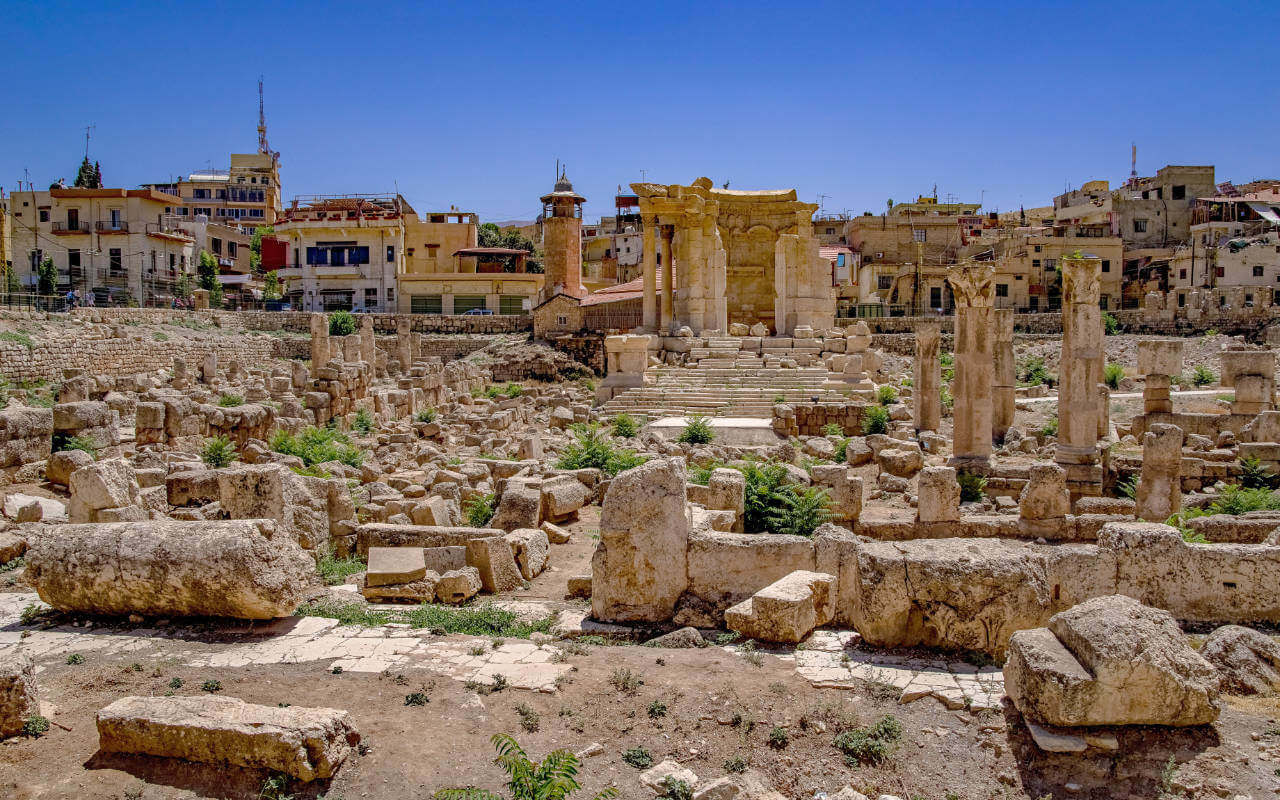
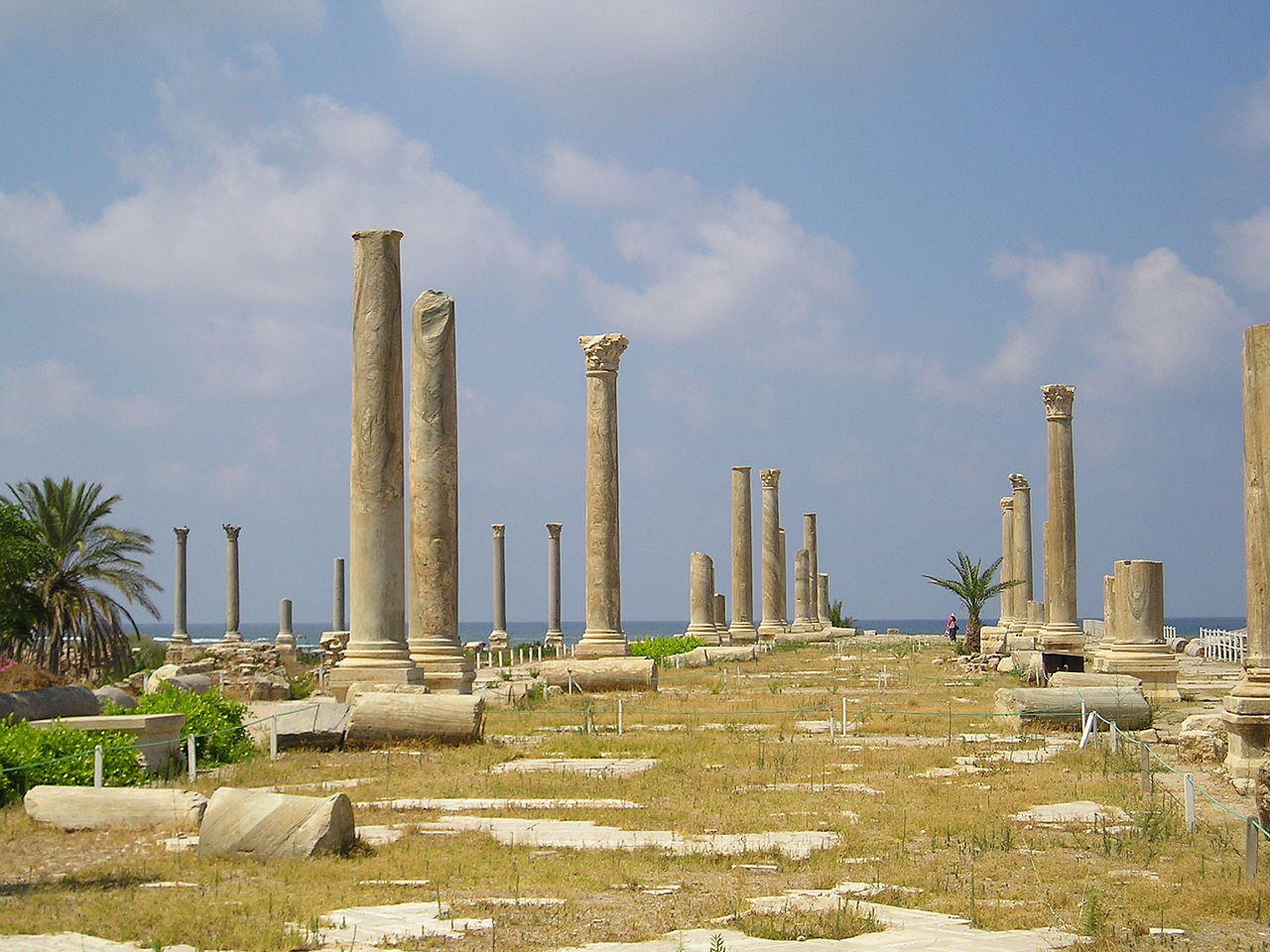

 Afghanistan
Afghanistan
 Egypt
Egypt
 Armenia
Armenia
 Azerbaijan
Azerbaijan
 Bahrain
Bahrain
 Georgia
Georgia
 Iraq
Iraq
 Iran
Iran
 Israel
Israel
 Yemen
Yemen
 Jordan
Jordan
 Katar
Katar
 Kuwait
Kuwait
 Libanon
Libanon
 Oman
Oman
 Palestine
Palestine
 Saudi Arabia
Saudi Arabia
 Syria
Syria
 Turkey
Turkey
 United Arab Emirates
United Arab Emirates
 Cyprus
Cyprus
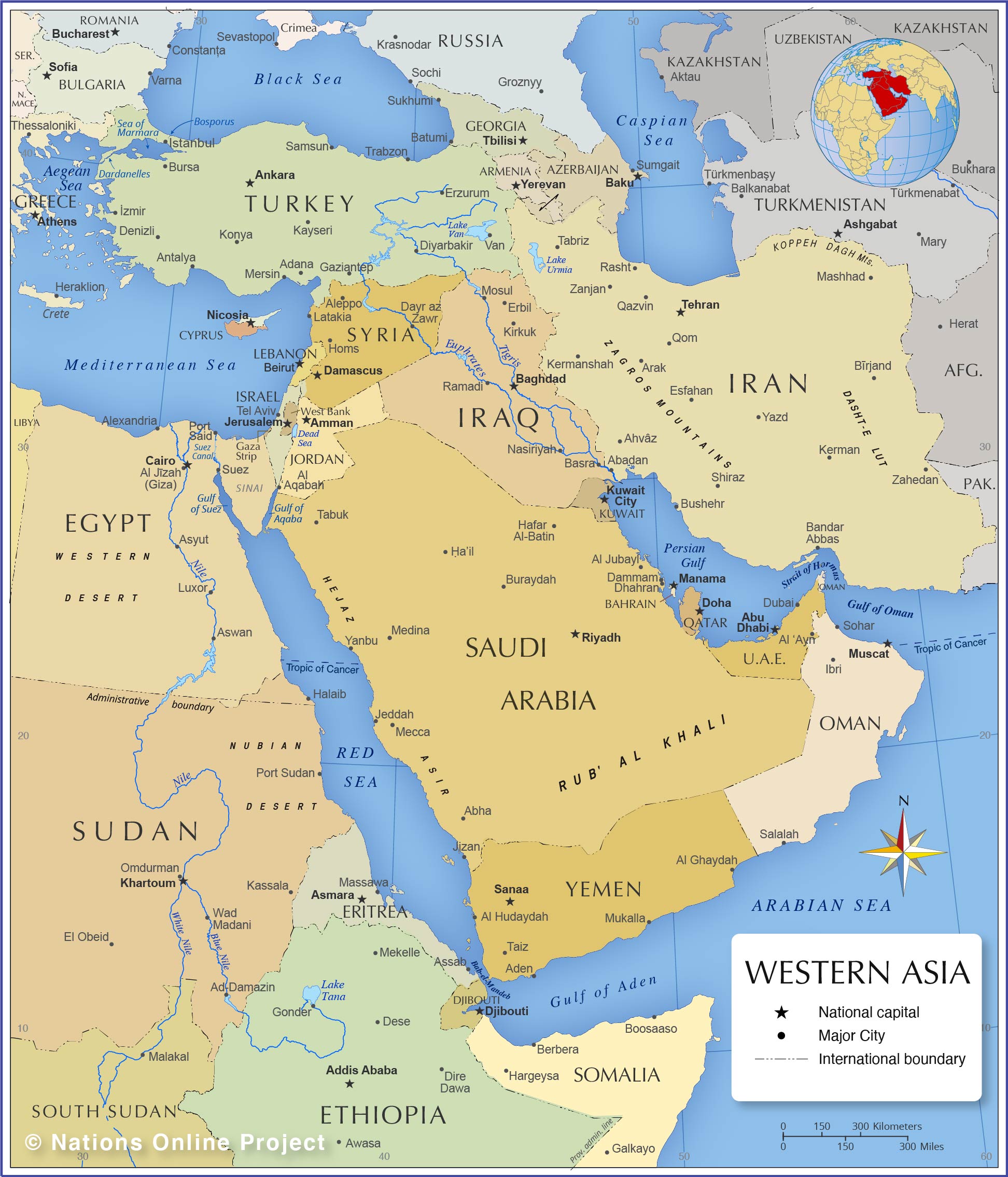

 Afghanistan
Afghanistan
 Egypt
Egypt
 Algeria
Algeria

 History
History
 K 500 - 1000 AD
K 500 - 1000 AD
 Iraq
Iraq
 Iran
Iran
 Yemen
Yemen
 Jordan
Jordan
 Katar
Katar
 Comoros
Comoros
 Libanon
Libanon
 Libya
Libya
 Malediven
Malediven
 Morocco
Morocco
 Pakistan
Pakistan

 Religion
Religion
 Islam
Islam
 Republic of the Sudan
Republic of the Sudan
 Saudi Arabia
Saudi Arabia
 Somalia
Somalia
 Syria
Syria
 Tajikistan
Tajikistan
 Tunisia
Tunisia
 Turkey
Turkey
 Uzbekistan
Uzbekistan

Verteilung muslimischer Glaubensrichtungen: Grün: sunnitische Gebiete; Rot: schiitische Gebiete; Blau: Ibaditen (Oman)
Die Sunniten bilden die größte Glaubensgruppe im Islam. Ihre Glaubensrichtung selbst wird als Sunnitentum oder Sunnismus bezeichnet. Die Bezeichnung ist von dem arabischen Wort Sunna (‚Brauch, Handlungsweise, überlieferte Norm, Tradition‘) abgeleitet. Diejenigen, die der sunnat an-nabī, der „Sunna des Propheten“ (sc. Mohammed), folgen, werden im Arabischen als ahl as-sunna („Leute der Sunna“) und im Türkischen als Ehl-i Sünnet bezeichnet, was im Deutschen üblicherweise als „Sunniten“ wiedergegeben wird. Neben ahl as-sunna wird im Arabischen auch der erweiterte Ausdruck ahl as-sunna wal-dschamāʿa (arabisch أهل السنة والجماعة, DMG ahl as-sunna wal-ǧamāʿa ‚Leute der Sunna und der Gemeinschaft‘) verwendet. Die Glaubenslehren der Sunniten werden in verschiedenen Glaubensbekenntnissen dargestellt, die sich je nach dogmatischer Ausrichtung der Autoren unterscheiden.
Heute gelten die Schiiten als die wichtigste Gegengruppe zu den Sunniten, allerdings hat sich das sunnitische Selbstbewusstsein im Mittelalter nicht nur in Absetzung zu den Schiiten, sondern auch zu den Charidschiten, Qadariten und Murdschi'iten herausgebildet. Über die Frage, welche dogmatischen Lehrrichtungen dem Sunnitentum angehören, besteht unter den muslimischen Gelehrten keine Einigkeit. Eine der wenigen internationalen Initiativen zur Klärung der sunnitischen Identität war die Sunnitenkonferenz von Grosny im August 2016. Auf ihr wurden die Takfīrī-Salafisten und andere extremistische Gruppen wie der Islamische Staat aus dem sunnitischen Islam ausgeschlossen.[1]
逊尼派(阿拉伯语:أهل السنة والجماعة,ʾAhl ūs-Sunnah wa āl-Ǧamāʿah,简称أهل السنة ʾAhl ūs-Sunnah),又译素尼派,原意为遵循圣训者,为伊斯兰教中的最大派别,自称“正统派”,与什叶派对立。一般认为,全世界大约有85~91%穆斯林隶属此派别[1][2][3]。
スンナ派(アラビア語:(أهل السنة (والجماعة 、ラテン文字転写:Ahl as-Sunnah (wa’l-Jamā‘ah))、あるいはスンニ派(日本では報道などでこちらが一般的に知られる)は、イスラム教(イスラーム)の二大宗派のひとつとされる。他のひとつはシーア派である。イスラームの各宗派間では、最大の勢力、多数派を形成する。
Sunni Islam (/ˈsuːni, ˈsʊni/) is the largest denomination of Islam, followed by 87–90% of the world's Muslims, characterized by a greater emphasis upon the prophet, the sahabah (in particular the Rashidun), and customs deduced thereof.[1][2] Its name comes from the word sunnah, referring to the behaviour of the Islamic prophet Muhammad.[3] The differences between Sunni and Shia Muslims arose from a disagreement over the succession to Muhammad and subsequently acquired broader political significance, as well as theological and juridical dimensions.[4]
According to Sunni traditions, Muhammad did not clearly designate a successor and the Muslim community acted according to his sunnah in electing his father-in-law Abu Bakr as the first caliph.[4] This contrasts with the Shia view, which holds that Muhammad announced his son-in-law and cousin Ali ibn Abi Talib as his successor, most notably at Ghadir Khumm.[5][6][7][8][9] Political tensions between Sunnis and Shias continued with varying intensity throughout Islamic history and have been exacerbated in recent times by ethnic conflicts and the rise of Wahhabism.[4]
The adherents of Sunni Islam are referred to in Arabic as ahl as-sunnah wa l-jamāʻah ("the people of the sunnah and the community") or ahl as-sunnah for short.[10][11] In English, its doctrines and practices are sometimes called Sunnism,[12] while adherents are known as Sunni Muslims, Sunnis, Sunnites and Ahlus Sunnah. Sunni Islam is sometimes referred to as "orthodox Islam",[13][14][15] though some scholars view this translation as inappropriate.[16]
The Quran, together with hadith (especially those collected in Kutub al-Sittah) and binding juristic consensus, form the basis of all traditional jurisprudence within Sunni Islam. Sharia rulings are derived from these basic sources, in conjunction with analogical reasoning, consideration of public welfare and juristic discretion, using the principles of jurisprudence developed by the traditional legal schools. In matters of creed, the Sunni tradition upholds the six pillars of iman (faith) and comprises the Ash'ari and Maturidi schools of rationalistic theology as well as the textualist school known as traditionalist theology. Sunni Islam is not a coherent line of tradition, but a consolidation of doctrines and positions worked out over time in discussions and writings.[17]
Le sunnisme1 est le principal courant religieux de l'islam représentant 90 % des musulmans du monde2. Constituant l'un des trois grands courants de l'islam avec le chiisme et le kharidjisme, le sunnisme se distingue des autres courants de l'islam par son interprétation de la religion. Les sunnites sont désignés en arabe comme les gens de la « sunna » et de la majorité religieuse (ahl al-sunna wa'l-djama‘a). Par opposition aux chiites et aux kharidjites, on les appelle parfois « musulmans orthodoxes »3.
Il sunnismo (in arabo: أهل السنة والجماعة, ahl al-sunna wa l-jamāʿa[1], "il popolo della Sunna e della Comunità") è la corrente maggioritaria dell'Islam, comprendendo circa l'85% dell'intero mondo islamico[2]. Essa riconosce la validità della Sunna (consuetudine[3], identificata coi Sei libri) e si ritiene erede della giusta interpretazione del Corano[1], articolata giuridicamente in 4 scuole o madhhab. Queste si dividono in Hanafismo, Malikismo, Sciafeismo, Hanbalismo. Mentre il cristianesimo è la maggiore religione del mondo (con 2,1 miliardi di aderenti) e l'Islam la seconda (con 1,8 miliardi), come confessioni il sunnismo (1,6 miliardi) supera il cattolicesimo (1,2 miliardi). Nell'islam, oltre al sunnismo, le principali confessioni sono rappresentate dallo Sciismo e dal Kharigismo. Sono presenti inoltre numerose forme minori (vedi denominazioni islamiche).
Nel sunnismo, così come nelle altre confessioni islamiche, ci sono divisioni interne tra i credenti sufi e coloro che rifiutano l'approccio sufico.
Los suníes1(en idioma árabe, سنّة) ʾAhlu-s-Sunnati wa-l-Jamāʿah (en árabe, أهل السنة والجماعة) son el grupo musulmán mayoritario en la comunidad islámica mundial. Su nombre procede del hecho de que, además del Corán, son devotos de la Sunna, colección de dichos y hechos atribuidos al profeta Mahoma. Aunque el Islam sunita se compone de una variedad de escuelas teológicas y legales que se desarrollaron a través de entornos históricos, localidades y culturas, los sunitas de todo el mundo comparten algunas creencias comunes: la aceptación de la legitimidad de los primeros cuatro sucesores del profeta Mahoma (Abu Bakr, Omar , Uthman y Ali), y la creencia de que otras sectas islámicas han introducido innovaciones (bidah), partiendo de la creencia mayoritaria.
Sunni Islam se desarrolló a partir de las luchas en el Islam temprano sobre el liderazgo. Las posiciones políticas y religiosas surgieron de las disputas sobre la definición de la creencia "verdadera", la libertad y el determinismo. Los sunitas tienden a rechazar el racionalismo excesivo o el intelectualismo en cuestiones de credo, centrándose en el espíritu y la intención de las fuentes primarias y utilizando argumentos racionales, cuando sea necesario, para defender la ortodoxia y refutar la herejía.23
Сунни́ты, ахль ас-су́нна ва-ль-джама‘а (от араб. أهل السنة والجماعة — «люди сунны и согласия общины») — последователи основного и наиболее многочисленного направления в исламе.

 Afghanistan
Afghanistan
 Egypt
Egypt
 Albania
Albania
 Algeria
Algeria
 Azerbaijan
Azerbaijan
 Bahrain
Bahrain
 Bangladesh
Bangladesh
 Benin
Benin
 Brunei Darussalam
Brunei Darussalam
 Burkina Faso
Burkina Faso
 Côte d´Ivoire
Côte d´Ivoire
 Djibouti
Djibouti
 Gabun
Gabun
 Gambia
Gambia
 Guinea
Guinea
 Guinea-Bissau
Guinea-Bissau
 Guyana
Guyana
 Indonesia
Indonesia
 Iraq
Iraq
 Iran
Iran
 Yemen
Yemen
 Jordan
Jordan
 Cameroon
Cameroon
 Kasachstan
Kasachstan
 Katar
Katar
 Kyrgyzstan
Kyrgyzstan
 Comoros
Comoros
 Kuwait
Kuwait
 Libanon
Libanon
 Libya
Libya
 Malaysia
Malaysia
 Malediven
Malediven
 Mali
Mali
 Morocco
Morocco
 Mauritania
Mauritania
 Mosambik
Mosambik
 Niger
Niger
 Nigeria
Nigeria
 Oman
Oman
 Organisation of Islamic Cooperation
Organisation of Islamic Cooperation
 Pakistan
Pakistan
 Palestine
Palestine
 Republic of the Sudan
Republic of the Sudan
 Saudi Arabia
Saudi Arabia
 Senegal
Senegal
 Sierra Leone
Sierra Leone
 Somalia
Somalia
 Suriname
Suriname
 Syria
Syria
 Tajikistan
Tajikistan
 Togo
Togo
 Tschad
Tschad
 Tunisia
Tunisia
 Turkey
Turkey
 Turkmenistan
Turkmenistan
 Uganda
Uganda
 Uzbekistan
Uzbekistan
 United Arab Emirates
United Arab Emirates

 Important International Organizations
Important International Organizations
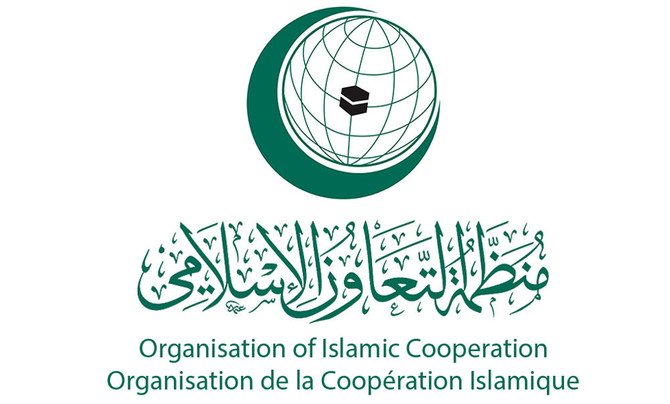
伊斯兰合作组织(阿拉伯语:منظمة التعاون الإسلامي;英语:Organisation of Islamic Cooperation;法语:Organisation de la coopération islamique)原名伊斯兰会议组织,是一个伊斯兰世界的政府间国际组织,为联合国大会观察员;该组织由遍及西亚(中东)、中亚、西非、北非、印度次大陆和东南亚的57个国家组成,覆盖的人口约为16亿。秘书处设在沙特阿拉伯王国的吉达市;现任秘书长是原沙特社会事务大臣Yousef Al-Othaimeen(从2016年开始)。
组织的宗旨是促进各成员国之间在经济、社会、文化和科学等方面的合作;努力消除种族隔离和种族歧视,反对一切形式的殖民主义;支持巴勒斯坦人民恢复民族权利和重返家园的斗争;支持穆斯林保障其尊严、独立和民族权利的斗争。
但要注意的是并非每个成员国是伊斯兰国家,如圭亚那、苏里南、莫桑比克、喀麦隆、乌干达和加蓬等国,伊斯兰反而是极少数人的信仰,阿尔巴尼亚则是唯一加入该组织的欧洲大陆的主权国家和联合国会员国,2011年脱离苏丹独立的南苏丹也在独立后脱离该组织的势力范围。
イスラム協力機構(イスラムきょうりょくきこう、アラビア語: منظمة التعاون الاسلامي、略称OIC; 英語: Organisation of Islamic Cooperation、略称OCI; フランス語: Organisation de la coopération Islamique)は、イスラム諸国をメンバーとして構成され、国際連合に対する常任代表を有する国際機構。公用語はアラビア語、英語、フランス語。かつてはイスラム諸国会議機構(منظمة المؤتمر الإسلامي、英語: Organisation of the Islamic Conference、フランス語: Organisation de la Conférence Islamique)という名称であったが、2011年6月にカザフスタンのアスタナでの会議で「イスラム協力機構」への変更と紋章が決定された[1]。
イスラム諸国の政治的協力、連帯を強化すること、イスラム諸国に対する抑圧に反対し、解放運動を支援することを目的とする。
加盟国はムスリム(イスラム教徒)が国民の多数を占める西アジア、北アフリカ、西アフリカ、東アフリカ、中央アジア、南アジア、東南アジアなどの57か国、オブザーバーが5ヵ国・8組織(国連など)からなり、世界13億人のムスリムの大部分を代表する。
加盟条件としては、国内でムスリムが大多数を占めることを必ずしも条件としているわけではなく、南アメリカのいくつかの国のようにマイノリティとしてある程度のムスリム人口を抱えているだけであっても、外相会議における審査で承認されればイスラム諸国のひとつとして機構に加盟することができる。イスラム教徒が多数派を占める国はほとんど参加しているが、イスラム教徒比率の高い国のうちエチオピア(30~50%)とタンザニア(約30%)が加盟していない。イスラム教徒人口の多い国で言えばインド(約1億5000万人)や中国(約2000万人)も加盟していない。逆にイスラム教徒比率の低い国ではガボン、ウガンダ、スリナム、ガイアナなどが加盟している(それぞれ10%未満)。
The Organisation of Islamic Cooperation (OIC; Arabic: منظمة التعاون الإسلامي; French: Organisation de la coopération islamique), formerly the Organisation of the Islamic Conference, is an international organization founded in 1969, consisting of 57 member states, with a collective population of over 1.8 billion as of 2015 with 53 countries being Muslim-majority countries. The organisation states that it is "the collective voice of the Muslim world" and works to "safeguard and protect the interests of the Muslim world in the spirit of promoting international peace and harmony".[1]
The OIC has permanent delegations to the United Nations and the European Union. The official languages of the OIC are Arabic, English, and French.
L’Organisation de la coopération islamique (OCI), en arabe : منظمة التعاون الإسلامي (Munaẓẓamat at-Taʿāwun al-islāmī), en anglais : Organisation of Islamic Cooperation (OIC), appelée jusqu'en 2011 Organisation de la conférence islamique (en arabe : منظمة المؤتمر الإسلامي, en anglais : Organisation of the Islamic Conference), est une organisation intergouvernementale créée le 25 septembre 1969. Son siège se situe à Djeddah en Arabie saoudite et elle possède une délégation permanente aux Nations unies.
Regroupant 57 États membres, sa vocation est de promouvoir la coopération dans les domaines économiques, sociaux, culturels et scientifiques (grâce notamment à la Banque islamique de développement), mais aussi la sauvegarde des lieux saints de l'islam ou encore le soutien au peuple palestinien. À l'échelle mondiale, il n'existe pas d'autre organisation confessionnelle dont les membres signataires soient des États.
Ses trois langues officielles sont l'arabe, l'anglais et le français2.
L'Organizzazione della cooperazione islamica (in arabo: منظمة التعاون الإسلامي, Munaẓẓamat al-taʿāwun al-islāmī; in inglese: Organization of the Islamic Cooperation, OIC; in francese: Organisation de la coopération islamique, OCI) è un'organizzazione internazionale con una delegazione permanente presso le Nazioni Unite. Rappresenta 56 Stati dell'Europa, Vicino Oriente, Medio Oriente, America meridionale, Africa, Asia centrale e del Subcontinente indiano.[1]
L'organizzazione, fondata a Rabat, in Marocco, il 25 settembre 1969 con il nome Organisation of the Islamic Conference, in arabo: منظمة المؤتمر الإسلامي, Munaẓẓamat al-muʾtamar al-islāmī; (FR) Organisation de la conférence islamique, mutato nell'attuale nel 2011.[2]
Ha come finalità la salvaguardia degli interessi e lo sviluppo delle popolazioni musulmane nel mondo.
Il 10 ottobre 1975 le è stato riconosciuto lo status di osservatore dell'Assemblea generale delle Nazioni Unite.
La Organización para la Cooperación Islámica (Árabe:منظمة التعاون الاسلامي); (Francés: Organisation de la Coopération Islamique); (Inglés: Organisation of Islamic Cooperation) es un organismo internacional que agrupa a los estados de confesión musulmana, creado en 1969 durante la Conferencia de Rabat y formalizada dos años después.
Su sede está en Yidda, ciudad costera de Arabia Saudí a orillas del Mar Rojo. Sus miembros son países con mayoría de población musulmana o con una comunidad significativa en ellos, con Estados miembros y observadores de África, Asia, Europa y América del Sur. El 28 de junio de 2011 se oficializó el cambio de nombre,1 anteriormente se llamó: Organización de la Conferencia Islámica (Árabe:منظمة المؤتمر الإسلامي); (Francés: Organisation de la Conférence Islamique); (Inglés:Organization of the Islamic Conference).
Sus acciones se circunscriben a la actividad colaborativa entre sus miembros, sobre todo en la lucha contra el imperialismo, el neocolonialismo y por la emancipación de Palestina. Históricamente se celebraron diversos congresos que contribuyeron con su desarrollo: Lahore (1974), La Meca (1981), Casablanca (1984), Kuwait (1987), Dakar (1991). Sus repercusiones son menores que las de la Liga Árabe.
Организация исламского сотрудничества (англ. Organisation of Islamic Cooperation (OIC), араб. منظمة التعاون الاسلامي) — международная организация исламских стран (до 2011 года называлась Организация Исламская конференция (ОИК).


 Architecture
Architecture
 Geography
Geography
 International cities
International cities
 Transport and traffic
Transport and traffic


 Aerospace
Aerospace
 Companies
Companies